The Simple Art of Making Vinegars At Home (Recipes Included)
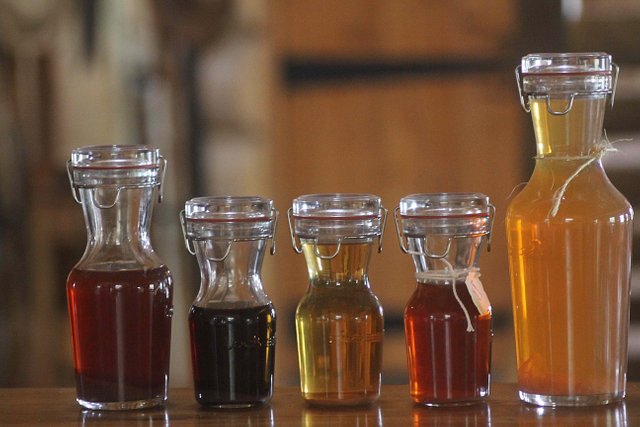
Vinegars are an important kitchen staple. Every culture seems to have their own speciality types of vinegars with recipes that date back centuries.
Used for flavouring & preserving food as well as heath tonics, skin and hair care, good quality unpasteurized vinegars are incredibly versatile. So often the best products for health, skincare and culinary uses can be found right in the pantry. We've got this pure, unadulterated goodness right at our fingertips and it's quite remarkable.
I've experimented with making a wide range of vinegars and putting them to use in our culinary, health and wellness regimes. We have been delighted with the results.
Nutritional benefits - Why you should make your own.
Unfortunately a lot of the vinegar that you find at the grocery store is mass produced. When they are heated or pasteurized they no longer contain all of the lovely nutrients and health benefits of those that are hand crafted. There are of course exceptions to this and you can find carefully crafted artisan varieties that have been made with care and attention, but why not try your hand at making your own?
Hippocrates, the father of modern medicine, prescribed apple cider vinegar mixed with honey for a variety of ills, including coughs and colds (400BC)
Hint: If you've got a bit of wine left over from wine making or from a bottle you've opened - with just a few minutes of work you can start it on it's way to becoming a lovely vinegar.
How Vinegar Is Made
Vinegar can be made from just about any alcoholic liquid under 18%. There's wine vinegar, champagne vinegar, apple cider vinegar, malt vinegar, beer vinegar, rice wine vinegar, vinegars infused with fruit and herbs and so many others that can be made at home by you with ease. Malt vinegar and balsamic (not really vinegar) are more advanced projects that I haven't really explored.
To make vinegar, you are essentially fermenting alcohol while exposing it to oxygen. The alcohol ferments into acetaldehyde, which then converts into acetic acid. A gel like bacterial culture called the mother grows on the surface and creates the vinegar.
The beauty of making your own vinegar is that you can start from scratch with apples, fruit or other ingredients, giving you full control of the quality of ingredients or you can leap ahead and start with store bought apple cider or wine or other ready made alcohol.
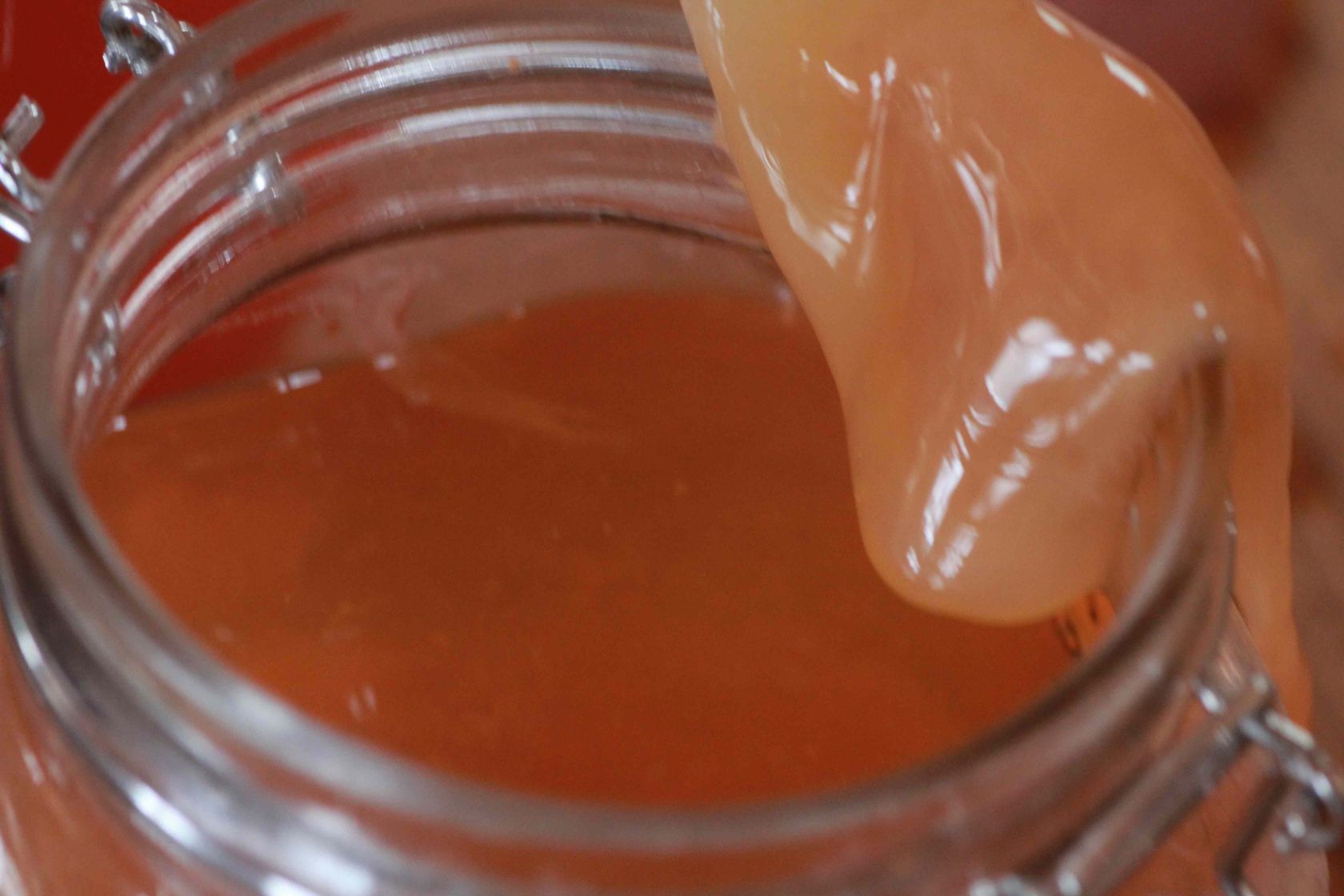
The process of converting alcohol to vinegar can take several months. Once you have a mother you can use it in subsequent batches to accelerate the vinegar making process.
Word of Warning
If you are a home brewer, never store your vinegar concoctions in the same room as your wine and beer ferments. The bacteria that creates vinegar can be quite disastrous if it gets into things you don't want to turn into vinegar.
Beer Vinegar
Take a beer that you like (the best are usually dark/strong ales) pour it into a sterilized glass jar and cover with cheesecloth. Secure with rubber band. Store in a dark cupboard away from other ferments like wine for at least two months. Test it on occasion and when it's vinegary to your liking, it's done. You can also add some mother from apple cider vinegar to accelerate the process.
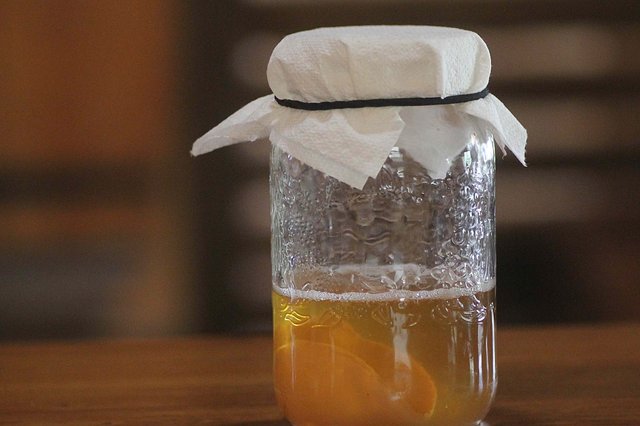
This is a light beer with mother added that we are trying out.
Vinegar For Heath
Raw apple cider vinegar is a popular way to make herbal tonics and tinctures and even alcoholic beverages using vinegar concoctions called shrubs. Be careful when taking vinegar directly because it can harm the enamel on your teeth. Use a straw or dilute it heavily.
It contains more than fifty nutrients including iron, calcium, magnesium, potassium & copper. In addition, it contains vitamin C, A, B1, B2, B6 and E. Acetic acid present in the apple cider vinegar causes release of energy from fats and carbohydrates noted which can aide in maintaining a healthy body weight. It raises our the PH level and increases the alkalinity. It's also regarded as an antiviral, antiseptic, antibacterial and anti-fungal product. source
The Amish have a leg cramp & acid reflux remedy from the 1800's that consists of Apple cider Vinegar, ginger and garlic.
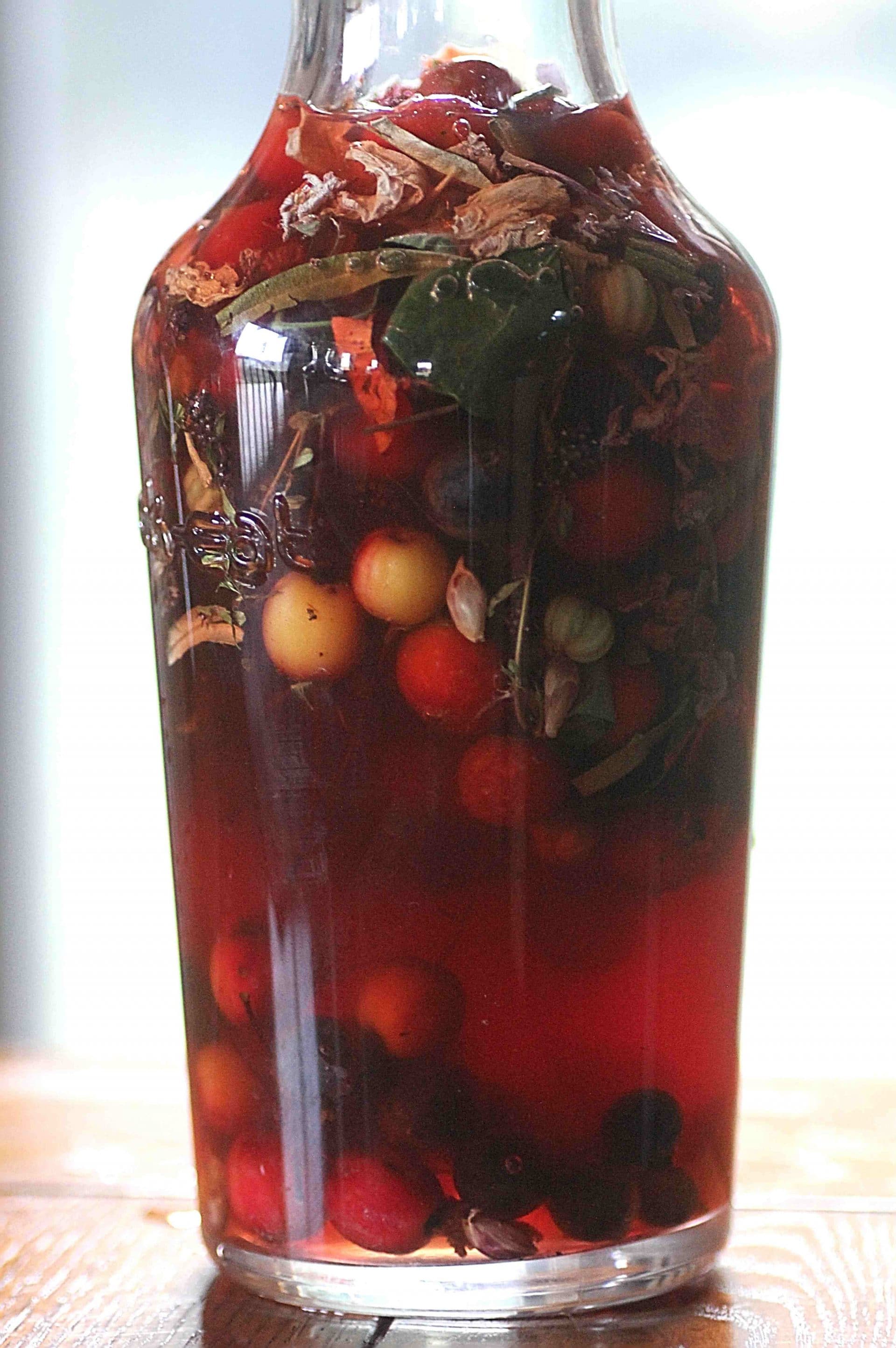
Vinegar Recipes
I highly recommend taking a bit of time to learn how to make your own apple cider vinegar, wine vinegar, herbal tonics and more! You don't need any special equipment to get started and the rewards are plentiful. Its a great way to save money while stocking up your pantry with delicious concoctions!
Charlotte’s Fire Cider Tonic Recipe
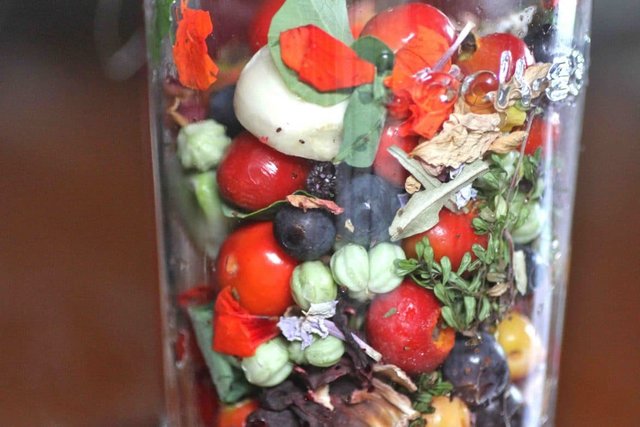
Raw Apple Cider Vinegar (ACV) Recipe
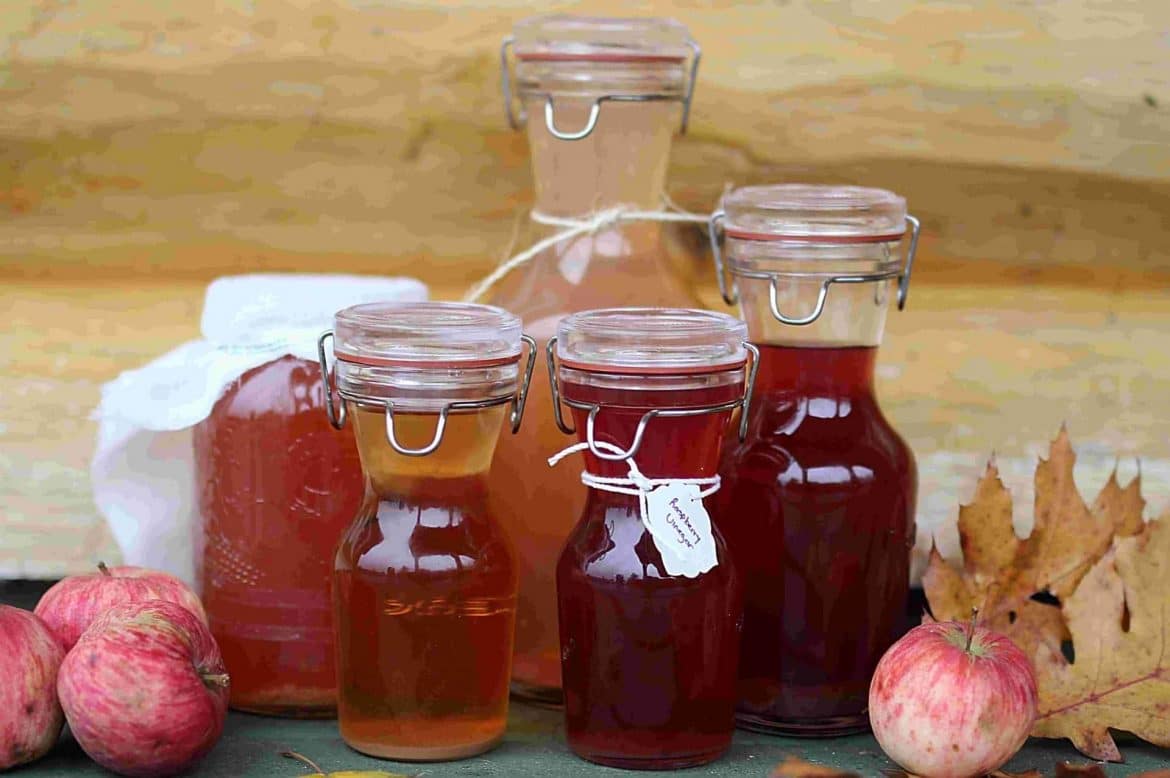
How to Make Your Own Wine Vinegar
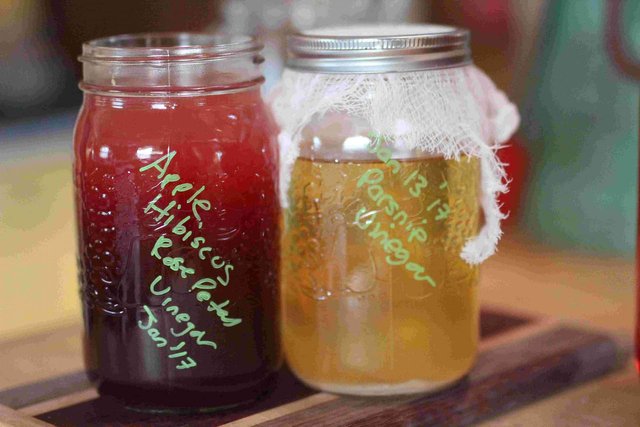
How To Make Raspberry Vinegar
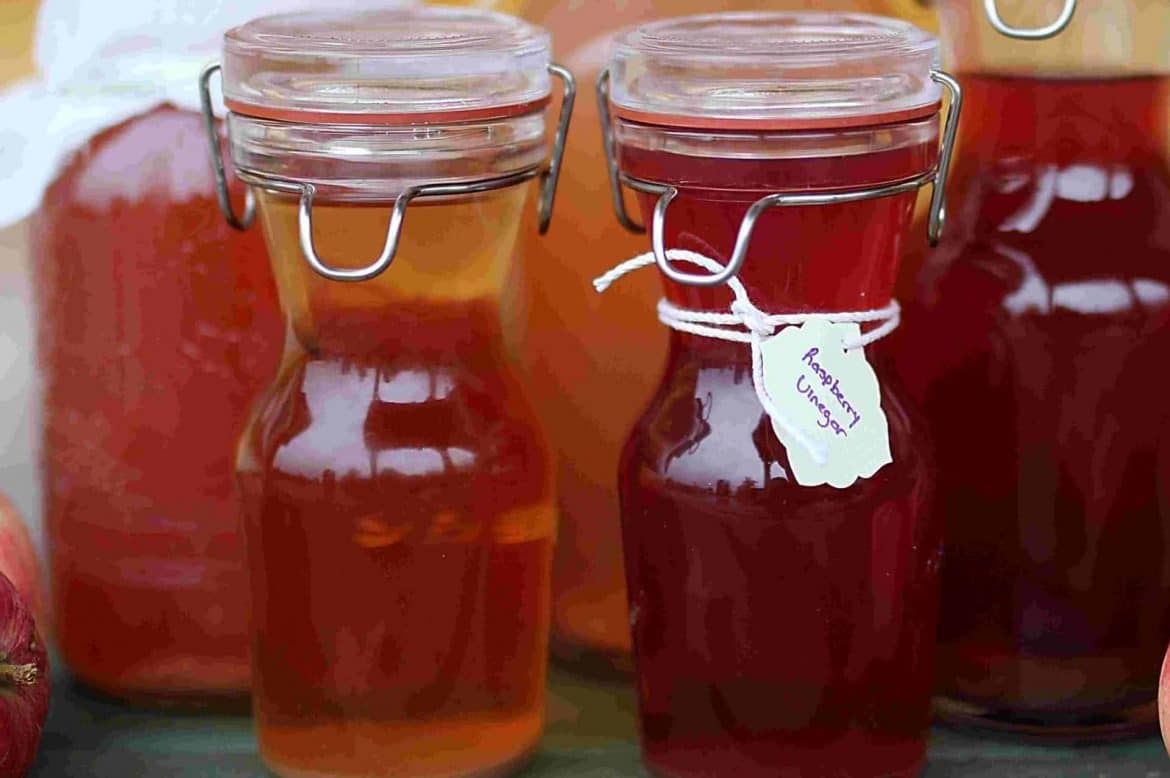
Rose Infused Vinegar
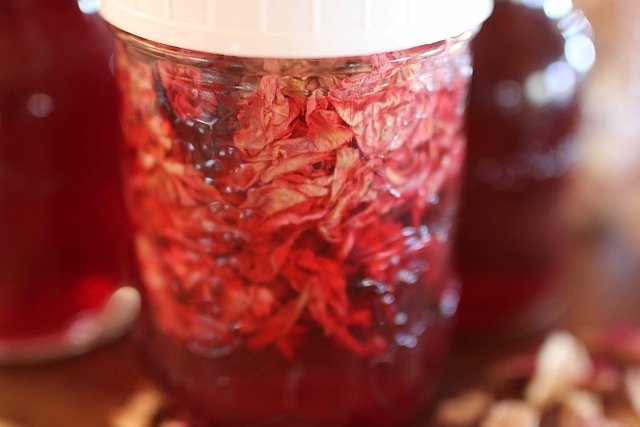
Further Reading
http://www.madehow.com/Volume-7/Vinegar.html
Building a greener, more beautiful world one seed at a time.
Homesteading | Gardening | Frugal Living | Preserving Food| From Scratch Cooking|
You can also find me at: walkerland.ca | Facebook
Photo copyright: @walkerland


Oh wow, I love this post! Beautiful pictures too <3
Resteeming so I can save it forever! I need to start making some shrubs! And beer vinegar?? Too cool!
Glad you found some recipes that grabbed your interest! Shrubs are wonderful! :)
NICE POST
Congratulations!
@ocd now has a witness. You can vote for @ocd-witness with SteemConnect or on Steemit Witnesses to help support other undervalued authors!
Thank you for such a comprehensive article! I will try the apple cider vinegar.
I had been wondering about vinegar, and whether it is something I could try making myself. Thank you for this awesome informative post!!!
I am so glad that you enjoyed it. I find that once you've made one vinegar you soon end up with a shelf filled with them because it becomes quite irresistible to keep going with it and trying new ideas.
Great post @walkerland - I love vinegar and fermented foods, made my own Kimchi once.
Thanks for the photos and links!
This post has been featured in the @offgrid-online - Weekly Review Curation - Thank you for sharing your knowledge and personal experience with making vinegars at home.
Thank you so much @offgrid-online I really appreciate the support and encouragement!
I've made chive blossom vinegar, apple cider vinegar, and ginger vinegar. The rose vinegar sounds really cool! I wish I had more roses....
Very cool! I never knew there were so many ways to make vinegar! I have not tried making my own, but I know how to make apple cider vinegar. And I have accidentally made kombucha vinegar several times. :/
Fire cider is pretty awesome! Great for preventing colds!
Thanks for sharing! Ill have to try some of the other things you listed!
Lovely photos, btw!
ooh, the accidental vinegars - I do that too. In fact my ferments are crazy because I tuck them away and forget about them sometimes. I had a bottle of homemade soda in the fridge .. I opened it the other day and it exploded everywhere, I was drenched, the walls were drenched ...it was a mess! Its such crazy fun though! :)
Oh my goodness! What a mess! I have been lucky and I havent had anything explode yet, but I have forgotten things to the point where they are pretty much only good to feed the chickens...
Love your new profile pic, btw. :)
Great stuff. Does it matter what the temperature is when it is fermenting? I have an enclosed outside area that I want to use. Thanks for the great diy article.
I am not very scientific but I would say room temperature is best. Hot and it might spoil and cold and it takes forever to ferment (our cabin is often a bit on the cool side so it usually takes longer for mine).
That makes sense. Thanks for the quick reply.